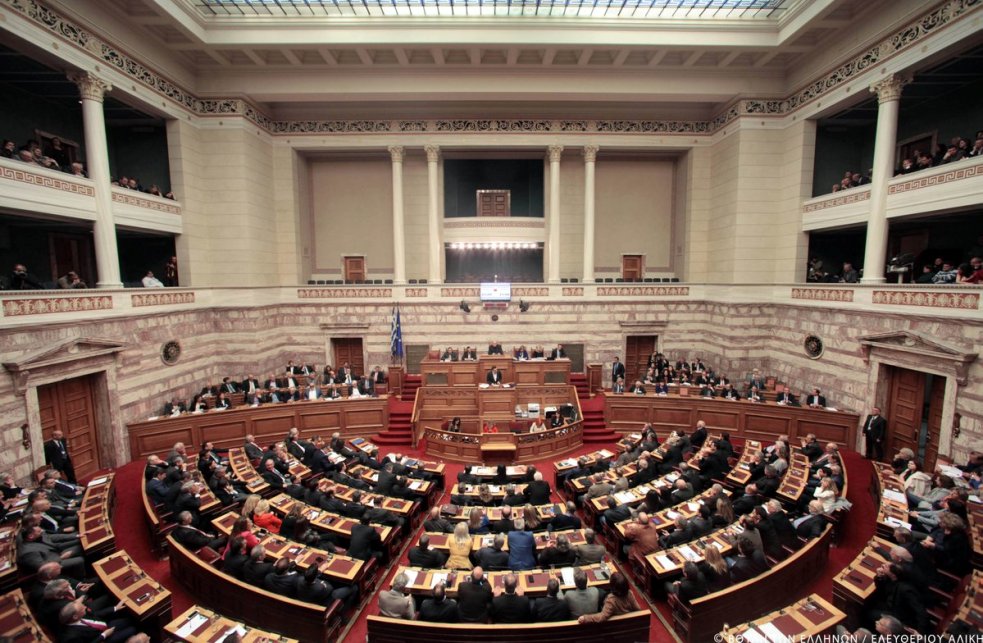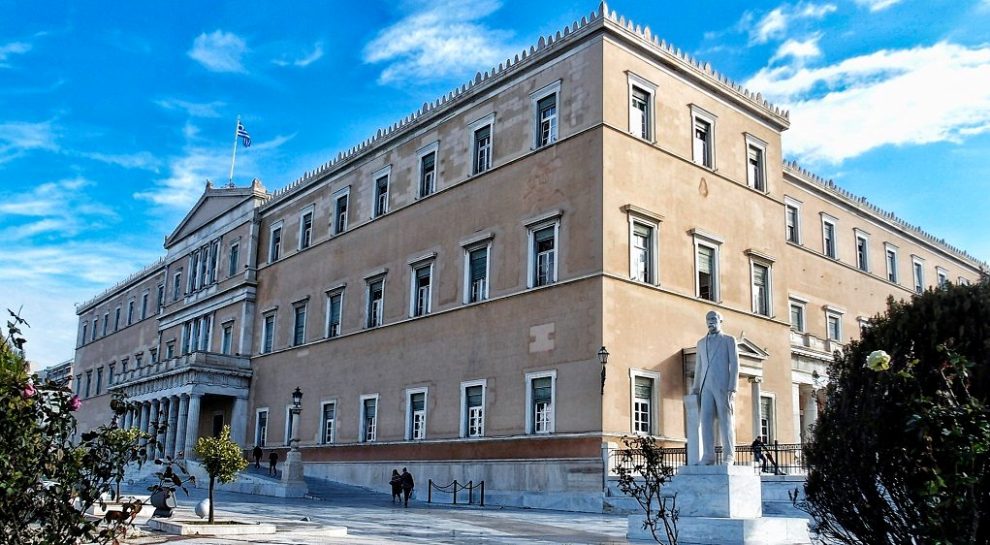The Greek legislative election will be held on 7 July 2019. The polling stations in the 59 electoral constituencies in Greece will be open from 7:00 to 19:00, while the Greek people will cast their vote for the 300 members of the Greek parliament, after the decision of the Prime Minister, Alexis Tsipras, to dissolve the parliamentary chamber and call an early election, following the results of EU parliamentary and regional elections. Greek Prime Minister Alexis Tsipras requested the dissolution of the Hellenic Parliament and the call for snap elections in order to avert a protracted period of political uncertainty that could hurt the economy after visiting the President of the Hellenic Republic Prokopios Pavlopoulos on June 11th.
“Greeks will decide on their lives, their future and their dignity,” said Prime Minister and SYRIZA party leader Alexis Tsipras, speaking at his main pre-electoral rally at Syntagma Square, on Friday evening, ahead of the Sunday vote. The PM noted that SYRIZA “is again asking for the people’s mandate to continue,” and said it will be “the first time to be judged on our own program,” for a Greece, he stressed, that is “contemporary, free, self-sustained, dominant and progressive.”
“We are ready to take the fate of our country into our hands,” New Democracy leader Kyriakos Mitsotakis said on Friday, during a brief tour of northern Greece prior to Sunday’s general elections, asking voters to give him their vote. A strong mandate, he said, will allow him to negotiate with Brussels for reduced primary surpluses, reduce taxes and negotiate for the best possible Common Agricultural Policy for Greece.
 The government formation process
The government formation process
Twenty political parties participate in Sunday’s elections. 250 seats will be distributed on the basis of proportional representation in the constituencies, with a threshold of 3% of those who voted required for entry into parliament. Blank and invalid votes, as well as votes cast for parties that fall short of the 3% threshold of those who voted, will be disregarded for seat allocation purposes.
The Greek Parliament is a unicameral parliament with 300 deputies. According to the electoral system in force, 250 deputies are elected by multi-member proportional voting with open lists and the leading party at the national level is awarded a bonus corresponding to the remaining 50 seats.Parliamentary majority will be achieved by the party or coalition of parties that will command at least one half plus one (151 out of 300) of total seats. According to the Constitution in force, after the announcement of the official results by the outgoing President of Parliament to the President of the Republic, the latter is responsible for the appointment of the Government, appointing first as Prime Minister the leader of the political party that has the absolute majority of seats and then, on a proposal from the latter, the other members of the government.
If no party has an absolute majority of the seats, the procedure of the exploratory mandates is activated and the president of the Republic gives this mandate to the leader of the party which has the majority, in order to explore the possibility of government formation. If there is no result after three days, the mandate is given to the leader of the second party and if there is no new result after three days, the mandate is given to the leader of the third party.
If the procedure of the exploratory mandates proves to be fruitless, the President of the Republic summons the party leaders and if the impossibility of forming a government endowed with the confidence of the Parliament persists, the president requests the formation of the government of all parties represented in Parliament for the purpose of holding elections. If this effort does not bear fruit either, an interim electoral government with a specific mandate is appointed, having as Prime Minister, one of the Presidents of the Superior Courts.

Press Center in Zappion
The General Secretariat for Media and Communication is organizing a press center for accredited media representatives in Zappion Megaron, which will be open on Sunday, election day. The press center has 180 workstations and so far 300 Greek and international media representatives have been accredited.
The abstention challenge
According to the Minister of the Interior, Antonis Roupakiotis, the challenge of these elections is that citizens go to the polls. ” At a time when Europe is obscured by forces far removed from the democratic functioning of institutions, at a time when the credibility of the state’s institutional organization is diminished in the eyes of citizens for many reasons, participation in elections is crucial. Abstention was strong in the European elections, we now have to reduce it, “said Roupakiotis. In recent years, we note that abstention is constantly growing (23.6% in 1996, 25% in 2000, 23.5% in 2004, 25.8% in 2007, 29% in 2009, 34.9% in May 2012, 37.6% in June 2012, 36.1% in January 2015 and 43.9% in September 2015 .)
According to the Greek Constitution, elections take place simultaneously in all parts of Greece and “the vote is direct, binding and equal” (Article 51 of the Greek Constitution). According to the available data, the electoral lists contain 9,903,864 voters (4,800,422 men and 5,103,442 women). The 23,35% (2,312,930) voters are over 71 years old. 651,697 electors are between 65 and 70 years old and 881,891 between 60 and 65 years old. A strong presence is also displayed by the electorate between 42 and 59 (2,905,645). 1,689,456 voters are between 30 and 41 years old. People aged 17 to 29 account for 14.76% of the electorate (1,462,241). Nearly 6 in 100 voters will exercise their rights for the first time. Citizens over 17 years of age have the right to vote as Greece lowered its voting age from 18 to 17 in July 2016.














